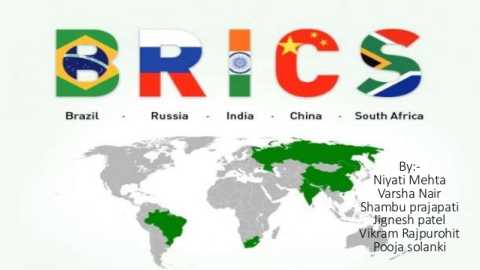
JOHANNESBURG/SHANGHAI, Aug 10 (Reuters) - Hobbled by the impact of sanctions against founding shareholder Russia, the New Development Bank (NDB) set up by the BRICS countries needs to increase its local currency fundraising and lending, South Africa's finance minister told Reuters.
South Africa will host leaders of the other BRICS nations - Brazil, Russia, India and China - as the bloc aims to widen its influence at a Johannesburg summit later this month.
Finance Minister Enoch Godongwana said boosting local currency usage among the NDB's members will also be on the agenda, with the aim of de-risking the impact of foreign exchange fluctuations rather than de-dollarisation.
The greenback has gained against emerging market currencies since Russia invaded Ukraine and the Federal Reserve began raising interest rates to fight inflation in early 2022, making dollar debt more costly for those countries to service.
"Most countries that are members of the NDB have been encouraging (it) to provide loans in local currencies," Godongwana said.
Established in 2015 as the flagship financial project of the bloc, the NDB's ambition to serve emerging economies and de-dollarise finance have been curbed by economic realities and Moscow's invasion of Ukraine.
"(It is) not doing as much as member countries require, but that is the strategic direction we are pushing the bank (in)," Godongwana said in a telephone interview last week.
Increasing local currency fundraising and raising capital from new members could help the NDB in tough times, cutting its dependence on U.S. capital markets where sanctions against Russia have driven up its borrowing costs, analysts said.
The NDB has expanded from its original core of five to eight and only makes loans in member countries.
Chief Financial Officer Leslie Maasdorp told Reuters in an interview at the NDB headquarters in Shanghai that the bank aims to increase local currency lending from about 22% to 30% by 2026, but that there were limits to de-dollarisation.
"The bank's operating currency is dollars for a very specific reason, U.S. dollars are where the largest pools of liquidity are," he said.
The bank is responsive to its members and will decide the mix of currencies it lends in based on their demands, Maasdorp said in emailed comments.
'NO PARALLEL UNIVERSE'
Of more than $30 billion in loans approved by the NDB, two-thirds were in dollars, an April investor presentation showed.
That dependence became a liability when the United States imposed sanctions on Russia last year.
Attracting the large emerging market countries that would lend the NDB more clout and shore up its financial health could require governance changes, said Chris Humphrey, a development finance researcher at ODI, a think tank formerly known as the Overseas Development Institute.
Current bank statutes ensure that, even as it expands, its five founding shareholders will together retain senior leadership positions and majority voting power.
"From the point of view of some other developing countries, that might not be very attractive. They might... say, ok, is that not just another G7 with a different name?," Humphrey said.
Maasdorp said that the NDB has a "unique" shareholder structure and the aim was to have as much consensus as possible within the bank on decisions but that a majority would prevail.
The voting structure had not been an obstacle to new members so far, he said, adding that they took comfort from the fact that the NDB was "very highly capitalised".




